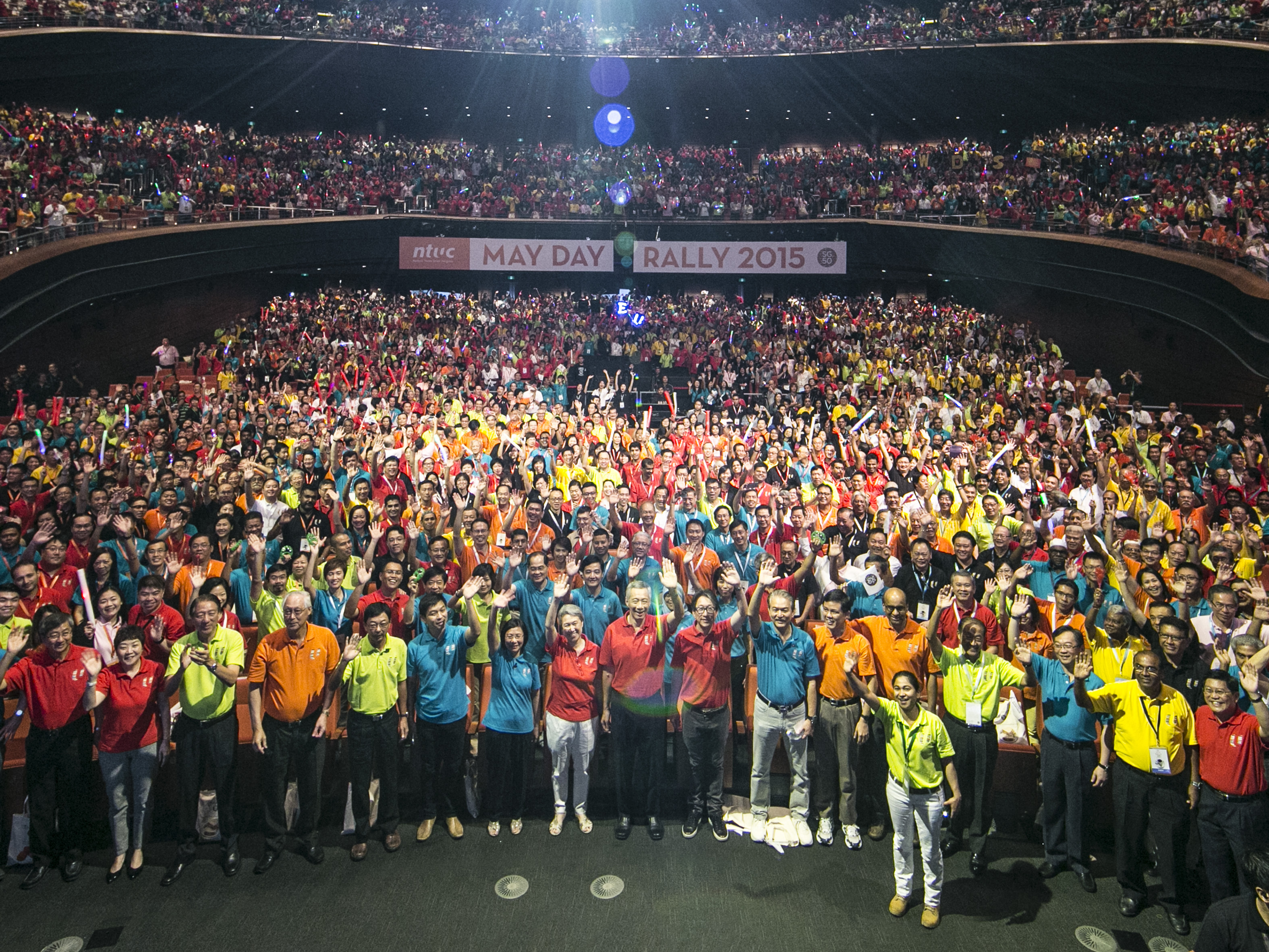When I first joined the National Trades Union Congress (NTUC) a year ago, I never fully appreciated how “unusual” this organisation was. It was only when I first participated in the annual International Labour Organisation (ILO) meeting in Geneva that I began to appreciate just how “unusual” we were.
Why “unusual”, and how so?
In most parts of the world, unions are seen as an anachronism of the past. Unionisation rates amongst workers in these countries have progressively declined as workers simply cannot find any reason to join them. This has resulted in many unions across the world, locked in an internecine fight over a shrinking pie with either their respective governments or companies, if not both. We, on the other hand, have been fortunate that our unionisation rate has continued to grow. This has been possible because of Singapore’s unique model of tripartism – where unions work together with the government and employers towards better outcomes for our workers.

In fact, in our many interactions with foreign MNCs, many were taken aback by our approach to working together; dealing with challenges; and perhaps most shockingly, to caring for our workers, including Professionals Managers and Executives.
Let me elaborate.
Firstly, they were surprised that we defined our mission as taking care of ALL working people, and not just the blue-collared rank and file workers. They were surprised that we saw it in our mission to help all workers, from rank and file to PMEs and even non-unionised workers in SMEs, to upgrade and stay competitive.
Actually, our outreach to PMEs takes a leaf from the professional guilds that flourished in Europe between the 11th and 16th centuries. These professional guilds took care of the standards and development of the various trades they represented and formed an important part of the economic and social fabric in that era. Similarly, the Singapore Labour Movement must take care of the professional development of our PMEs. This is the reason why, over the past year, we worked hard to more than double the number of professional guilds, or U Associates as we call them, who have partnered us. From 12 U Associates to 26 today, our partners cut across sectors such as accounting, human resources, engineering, IT and finance to name a few.
But beyond simply forming strategic partnerships, some of the outcomes of these partnerships include sectoral-specific programmes in Engineering, Workplace Safety and Finance. These programmes focus on identifying core skillsets and equipping our PMEs with the right skills to progress further in their careers. Through our ecosystem of partners, we open the doors for our PMEs to gain exposure in meeting thought leaders from different fields, expand their perspectives and learning in different areas, to enable them to reach C-suite positions.
SME bosses and SME HR managers are also on our list. This is simply because 70% of Singapore’s workforce work in SMEs. If the Labour Movement is to take care of ALL our workers, then this is a pool of workers we must include in our outreach. We must therefore find a different model (from the union mechanism) that can allow us to provide our services and value add to the workers in the SMEs. To do so, we need our SME bosses and SME HR managers to become our partners in taking care of our workers.
This is also why we set up the U SME initiative, which has since seen 25 signed MOUs covering a total of 29,070 workers across 1197 companies. Leveraging this partnership, SMEs can tap on NTUC’s network of unions and partners for a range of services and resources. In return, they agree to adopt Fair Employment Practices and Tripartite Guidelines, enhance Workplace Safety and Health and comply with employment related acts. Ultimately, this would benefit both SMEs and their workers.
Secondly, many foreign companies found it “unusual” that we constantly talk about helping our companies and workers to grow the pie together, rather than to fight over a slice of a shrinking pie. With these companies, I usually preface the conversation by declaring that “the enemy is not within the room” but it’s really the competition out there. To us, companies and workers doing well are both sides of the same coin.
As an example, I recently met with the top management of a foreign hi-tech company here in Singapore. Sitting down with them, I could almost immediately sense this in their eyes: Why should I talk to you? What do you want to bargain with me? Are you going to create trouble for us?
The management was surprised when we asked them if they were able to recruit the skilled workers they needed and if they needed any help in training their workers. We did not talk about collective agreements, collection bargaining or conditions for strikes etc. We were trying to add value to the company and their workers. We shared with them why having a union in their company was not an indictment on their HR.
Instead, we shared with them how the unions could value add to industrial relations by mobilising workers to embrace upgrading and lifelong learning. A few weeks later, we were pleasantly surprised to learn that the company’s top management had enrolled all their workers into the union and even paid for their membership, a departure from their company practice elsewhere to avoid working with any unions.

Having said this, our Labour Movement must not be complacent. While our membership continues to grow in contrast to global trends, we must remain “paranoid” and ask ourselves if we are constantly expanding our networks to serve ALL workers. Are we providing new value-added services that our new generation of workers need? If the concerns of the new generation of workers are more towards professional development, networking opportunities and employment placement, instead of collective bargaining and industrial action, then are we poised to provide these services for our workers?
Can you imagine the Labour Movement (LM) working with professional bodies on professional standards? Or can you imagine the LM having partners beyond 60 affiliated unions but include, say, another 60 affiliated U Associates? Or can you imagine the LM sharing resources with SNEF, our employer federation, to groom and develop our SMEs and their HR managers? Or how about LM partnering an internet portal company to reach out to professionals to help them with their development and placement needs? What about having the LM help in organising freelancers and even private hire drivers (like those from Uber) to protect their interests?
Well, we need not imagine all these for they are already works in progress. What we need to imagine are even more creative ways to reach out to ALL workers. The universe of what we can do for our workers is only limited by our imagination. We have every desire to remain as the unusual Labour Movement – one that truly serves the workers’ needs through all ways – conventional and unorthodox.
There are 3 “U”s in the word unusual. Our Labour Movement aims to be unusual in at least 3 ways – constantly reinventing ourselves to take care of ALL workers and not just some; constantly making sure that our workers remain competitive and enjoy a growing pie rather than fight over a shrinking pie; and continuing to grow from strength to strength to buck the worldwide trend of declining numbers and relevance for unions. If we can do these well, we will remain an institution that Singaporeans can be proud of and an institution that can value add to Singapore’s continued development.
CS
This is a post by National Trades Union Congress (NTUC) Secretary-General Chan Chun Sing. Any extracts should be attributed back to the author. 18 February 2016.

